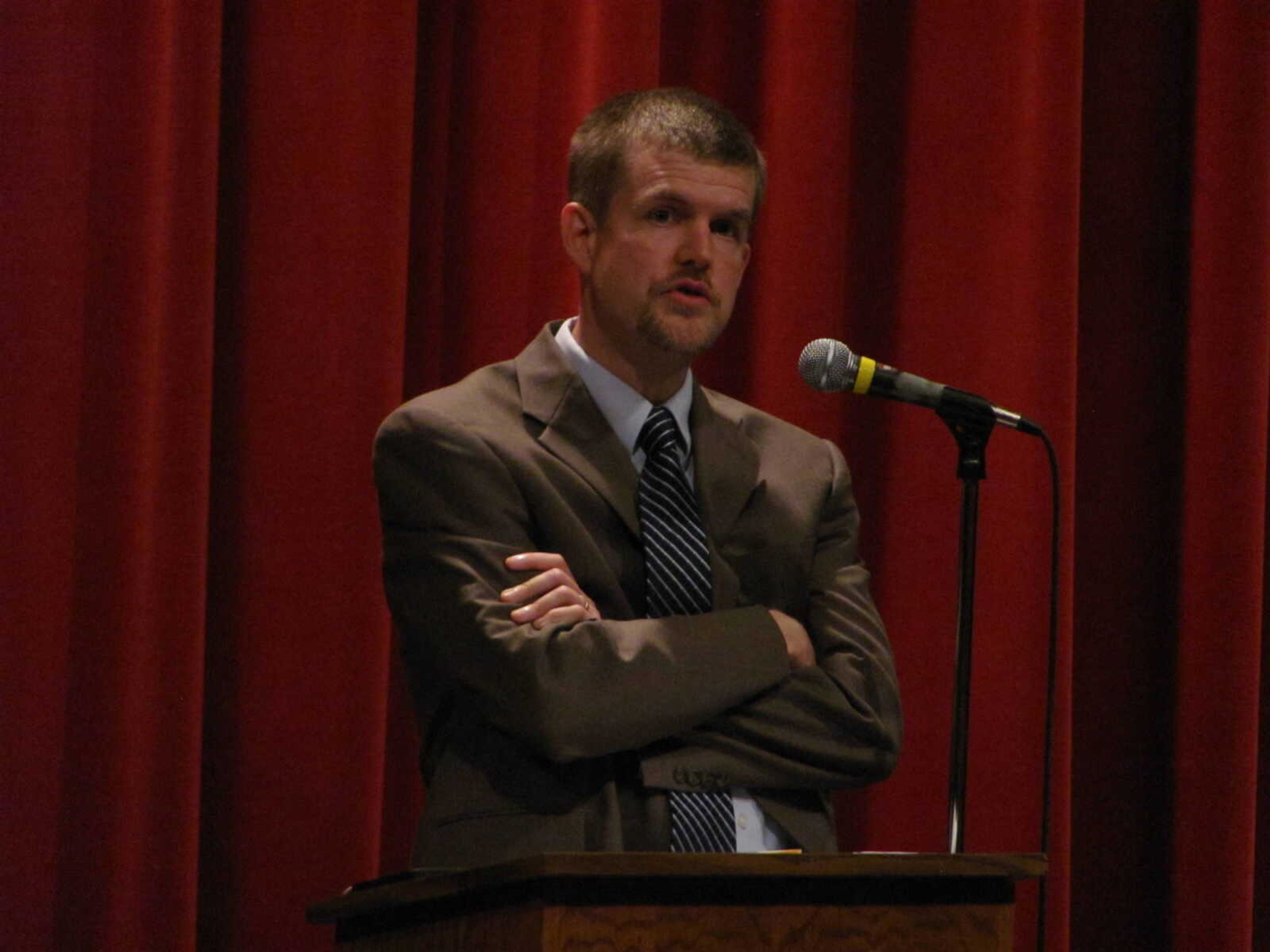Dr. Thomas Kidd spoke Tuesday about Patrick Henry's place in history for the annual Crader Lecture.
The lecture, titled "Patrick Henry, First Among Patriots," was able to explore the founding father most known for his "Give me liberty, or give me death" speech that is said to have convinced Virginia to send troops for the Revolutionary War.
"Many Americans know or have heard of liberty or death, but what else do Americans know about Patrick Henry?" Kidd said. "Present company excluded, I expect not much."
Henry had hardly any formal schooling in colonial Virginia as a child, but was instead taught by his parents. After failing at business and farming, Henry decided to become a lawyer and passed the bar exam without much studying and no college education.
During his first major case, he defended Virginia against a veto from King George III from Great Britain. Henry said that the king was behaving as a tyrant and therefore forfeited the colony's obedience.
"This is 1763, and he's saying that the king is degenerating into a tyrant," Kidd said. "This is part of the reason why I call Patrick Henry the first among patriots. Not necessarily because he's the most patriot leader, but he always seems to be first. First in claiming that the king is in danger of becoming a tyrant. First to say that Virginia should take up arms against the British. He always seems to be first in line."
Henry rose to fame after getting into state politics. He led against the Stamp Act and convinced Virginia to join the rebellion through his speech. Henry became the first governor of an independent Virginia.
Kidd explained that Henry's major priority had been as a "defender of religious liberty, a key part of the first amendment of the constitution."
Henry was against the ratification of the constitution due to a lack of citizen rights, or what would be called the Bill of Rights. Kidd told a story of George Washington sending a copy of the constitution to Henry to try to convince him to change his mind.
Henry was worried that they had fought against such a strong national government with the British, yet were creating the same mistake with the powers of the president and congress and would create a rift between the northern and southern states.
While Henry failed in his attempts to stop ratification, some of his proposed ideas for amendments were soon adopted.
Kidd stated that while Henry had been forgotten by history as a key founding member of our government, without him and the anti-federalist movement the part of the constitution we hold most dear, the Bill of Rights, would not have existed.






